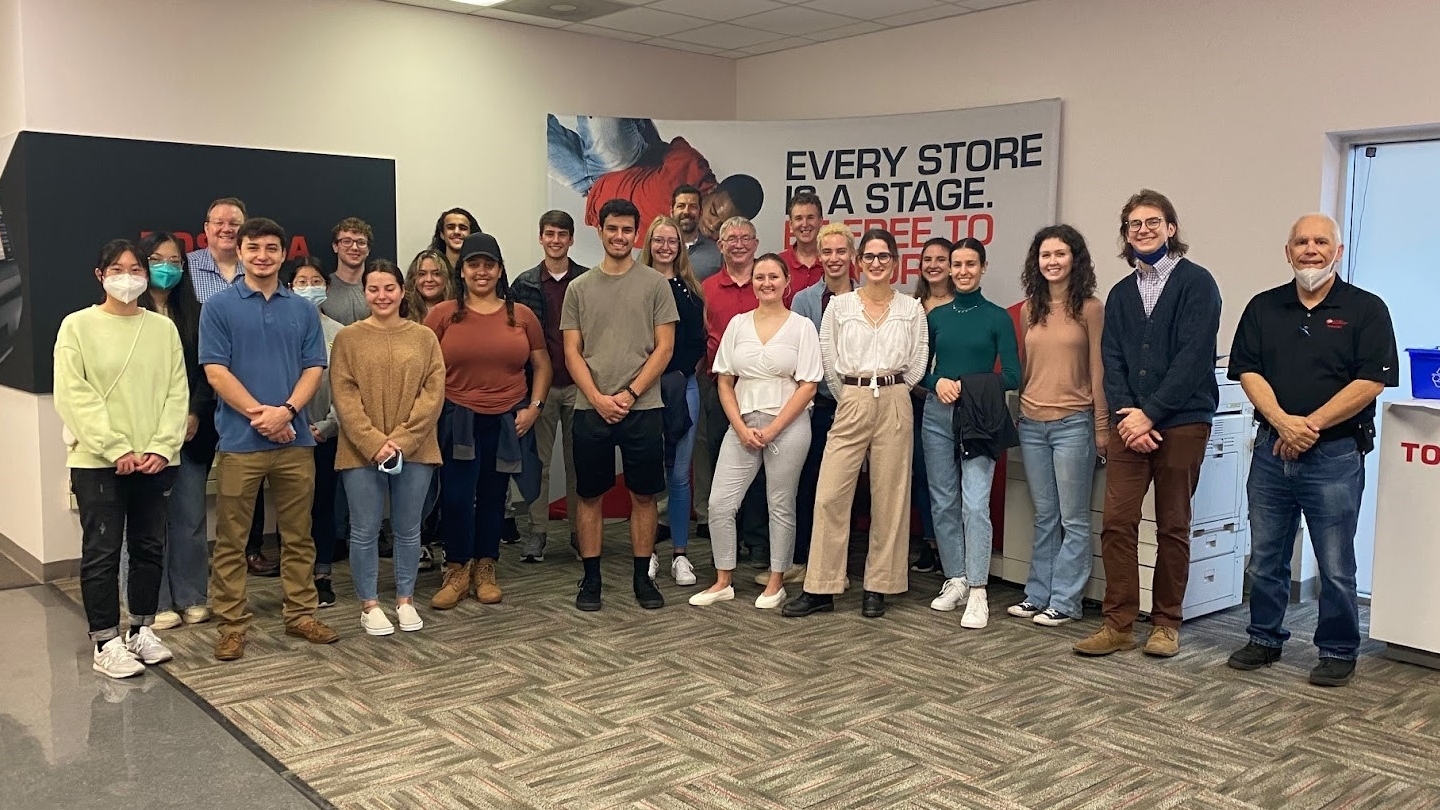Improving Access to World-class Supply Chain Knowledge

When you think about the Supply Chain Resource Cooperative (SCRC) at NC State’s Poole College of Management, you probably think about the practicum projects supply chain students work on each semester with the SCRC’s partner companies. (And understandably so — the projects often provide clients with tremendous value!)
But did you know there are several other ways the SCRC helps to advance the supply chain profession?
One of its latest endeavors is helping CAPS Research, a research center focused on creating leading primary academic research in supply management, with a year-long initiative to overhaul its massive library of world-renowned supply chain research studies from the last 30 years.
The project will provide supply chain and procurement professionals with improved access to benchmarks, best practices and various other resources for “improved strategy development and decision-making.”
About CAPS Research
CAPS Research was established in 1986 at the W. P. Carey School of Business at Arizona State University (ASU) in partnership with Institute for Supply Management (ISM), and positions itself as a not-for-profit content company serving as a resource database for Fortune 1000 and Global 2000 companies.
[marketing-quote color=’blue’ quotes=’true’ align=’center’ source=”]We’re getting the talent in supply management ready for the future.[/marketing-quote]
Its research addresses highly-relevant supply chain topics including: risk and resiliency, sustainability, leveraging emerging tech and implementing AI machine learning, internet of things and blockchain, among others.
“We’re getting the talent in supply management ready for the future,” says CAPS Research Executive Director Bryan Fuller, who is co-leading the new project with Dr. Rob Handfield, executive director of the SCRC at Poole College. Handfield is a long-time partner of CAPS, having published research and lectured for the organization since 2004.
The challenge
The CAPS Library of content currently includes PDF white papers, articles and benchmark reports — many of which contain several pages, graphs and visual elements that can often make it challenging for users to find what they need and apply it quickly in their practice.
That’s why one of the center’s newest priorities — and a huge driving factor behind this new project with the SCRC — is to provide users with a better user experience.
To do this, the project team will need to digitize the content in the CAPS library in a way that makes it more accessible, searchable and useful for supply management practitioners.
“We want members to have multiple ways to access and apply our content,” Fuller says. “How do they bring it into their own practice to improve their organization? That’s what we’re trying to address with this project.
“CPOs and the senior leadership that we work with at these companies — they’re very busy. And so this will make it much easier for them.”
Enter NC State
Not long after Fuller realized an overhaul of the CAPS Library might be in order, Dr. Handfield came to mind. Considering Handfield has also worked on several CAPS research projects in years past, Fuller was confident he could bring a lot to the table.
“We want the best researchers working with CAPS,” Fuller says. “And when it comes to the best researchers and individuals that are very future-focused, Rob is top of mind.”
Fuller reached out to the NC State professor earlier this year, and Handfield was eager to get involved.
The game plan
With the project now underway, the project team has their work cut out for them given the nature of the CAPS Library.
“There’s so much of it,” Fuller says. “I didn’t realize how rich and valuable the content is until I really started reading it and digging into the library itself.”
The project will involve three phases: mapping the content in the library, researching and developing analytics applications, and developing a content curation process that will allow content from multiple reports to be pulled into a single, custom report.
Key players
On the NC State side, Handfield is using his expertise to provide insights on the platform’s user experience from an external perspective — essentially standing in for supply chain executives and weighing in on what they might be looking for.
Also playing an essential role is Nikhil Singh, an alumnus of NC State’s MBA program, who Handfield says is a perfect fit for this project, given his background:
“Nikhil’s great because he’s got a computer science background and an MBA in procurement supply chain. He can talk with the computer guys that are working on this project — we were on a call yesterday and he was able to speak their language, and I [couldn’t]. He also understands the importance of the content and how to access it. And he’s very creative, so he may be able to come up with other technologies that could be useful.”
For CAPS, in addition to Fuller, Patrick McNamara is contributing as the head of technology, and Geoff Zwemke is serving as the director of benchmarking. Providing additional support is Haard Mehta, an MBA student from ASU who is focusing his studies on analytics and computer science.
[marketing-quote color=’blue’ quotes=’true’ align=’center’ source=”]We are here to advance the profession. And if NC State is advancing the profession, CAPS should be right there with them.[/marketing-quote]
Building each other up
For Handfield, he’s inspired by how well the project aligns with the other initiatives the SCRC is currently focused on. “Our partnership is a nod to leading-edge institutions like ours and CAPS at Arizona State University, that are really shaping the future of both supply chain management and academic research,” he says.
Additionally, the collaboration means NC State graduate students will have access to the research in the CAPS library, which Handfield describes as “some of the best in the world.”
“It will also connect us to all of the CAPS member companies,” Handfield adds, “so I think this project will give us great exposure, which can only lead to good things.”
Fuller says he appreciates the dynamic nature of what the NC State team brings to the table. “What Rob’s connecting us with is not just traditional supply chain. We’re getting support with data and engineering as well.”
Overall, the future between the two organizations looks promising.
“As Rob continues to advance his supply chain practices and offerings, we want to be a part of that. We are here to advance the profession. And if NC State is advancing the profession, CAPS should be right there with them,” Fuller says.
The CAPS Research project is currently in phase 1 of 3, with the final phase scheduled to be completed by May 2022.
This post was originally published in Supply Chain Resource Cooperative.
- Categories:


